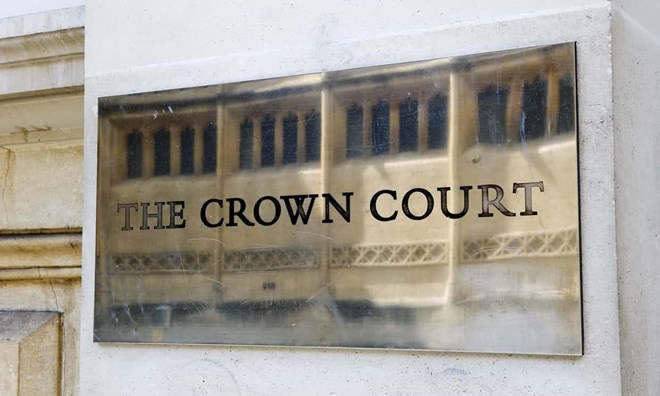
Tuesday February 20, 2018
By Steven Morris
Jury hears man told charity worker procedure carried out in his culture to prevent women from ‘feeling sexy all the time’
 The sign on the outside of Bristol crown court. The defendant denies child cruelty. Photograph: Alamy
The sign on the outside of Bristol crown court. The defendant denies child cruelty. Photograph: Alamy
A father from Bristol arranged for his seven-year-old daughter to undergo a female genital mutilation procedure and told a charity worker the practice was carried out in his culture to prevent women from “feeling sexy all the time”, a jury has heard.
The man, who is of Somali origin, allegedly explained to the charity worker: “I did the small one to my daughter, other people did the big one, I did the small one.”
Bristol crown court was told the prosecution was not suggesting that the man, a 29-year-old taxi driver, carried out the FGM procedure himself but that someone in the community had done it. The man denies child cruelty.
At the start of the trial, the judge, Julian Lambert, checked that no jurors were active campaigners against FGM. He also warned the seven women and five men that the subject of FGM could incite very strong feelings.
Anna Vigars QC, prosecuting, told the jury: “The case concerns … a practice that is illegal in this country and is becoming illegal in countries around the world. But there are communities in African and the Middle East where it is common.”
Vigars said it was a procedure that was not medically necessary but sent out the “loud and clear” message that a girl was not in a “satisfactory condition” when she was born. “It’s a practice to keep young girls and women in their place,” she said. In this case the idea had been to mark the girl, she added.
The barrister said that in March 2016, Sami Ullah, a man working for the Bristol charity Integrate, which campaigns against FGM, was picked up by the father, an Uber driver.
Ullah began to chat with the driver and asked him whether he knew what FGM was. He did not know so Ullah used the Somali word: “Sunna”. The driver allegedly made a cross sign with his finger and said: “You mean cut”, the jury was told. He went on to say that many people in his culture did it but it was wrong. He went on to say his daughter had had the “small one” but lots of people had the “big cut”, the court heard.
After the journey, Ullah reported what had happened when police and officers visited the defendant’s family home in Bristol. His seven-year-old daughter was examined and a small lesion spotted. Vigars said it was an “unusual mark” in a part of the body that was “particularly well protected”.
When the girl was re-examined later the leison had healed. Vigars said this suggested she was not born with the mark but it had been put there.
The defendant denied anything had been done to his daughter when he was interviewed by police. Vigars said: “Nobody is saying he did this himself” but someone in the community had done it – and he had allowed his daughter to be exposed to harm.
Vigars added: “Nobody is suggesting [the defendant] is not a good father. His children are a credit to him and his wife … It doesn’t alter the fact that he exposed her to a painful procedure.”
The child had been burnt, pricked, cauterised or damaged in one of the body’s most sensitive areas, the barrister said. “He had responsibly for her as a father. He exposed her to this.”
In the witness box Ullah said: “He [the defendant] told me he had got it done in an area of Bristol. I asked him if he knew it was illegal, he replied it was culture and tradition, some people do it, some people don’t.
“He told me that he had got it done to his daughter and there were [places] where you could get it done. He said, around the facility of the health centre.
“He asked do you know why we do it and before giving me the chance to reply, he said: ‘So women don’t feel sexy all the time.’”
The trial continues.